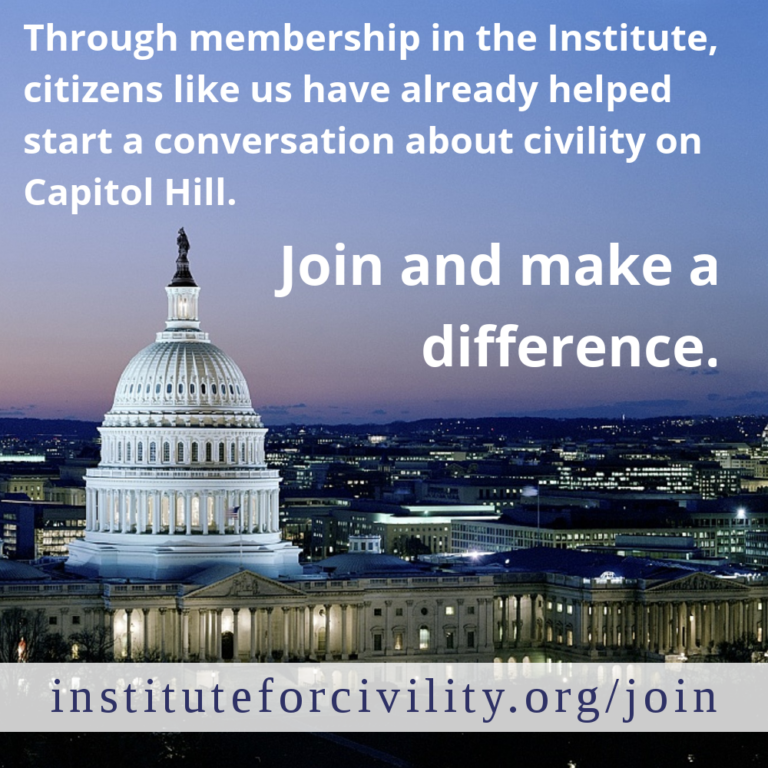Civility Linkblogging: Universities, and the Potential for Civility’s Abuse

This post is part of our ongoing effort to highlight discourse about civility around the web. Our articles for civility linkblogging come from a wide cross-section of blogs and newspapers, magazines and other websites, from the United States and abroad.
This week’s edition of the segment is devoted to some of the high-profile debate regarding civility that has taken place on and around university campuses in the month of September. In September, administrators at the University of California, Berkeley and Penn State University called for civil discourse from faculty, students, and alumni as the new semester got underway. But as several of the articles featured here pointed out, civility in this context is not without its dangers. As James Hanley of Ordinary Times writes, campus ‘free speech zones’ and civility codes
are directly aimed at civility, being put in place with the understandable purpose of trying to protect female and minority students from offensive language. But their actual speech impact often goes beyond that, and even that goal can run afoul of the First Amendment.
This particular thread of debate becomes heated at times, and carries with it some strong language. But for folks who are interested in the range of possibilities for how calls for civil discourse might impact a community, this thread of debate is an invaluable read.
If you have an article that you think would be right for future civility linkblogging posts, please do not hesitate to email it to us at [email protected]. Include the title, url, and a short summary, and we will gladly review it for publication.
Now — the list:
From the Free Speech Movement to the Reign of Civility
By Nicholas Dirks, U.C. Berkeley Chancellor, posted at Reclaim UC, September 5, 2014
For free speech to have meaning it must not just be tolerated, it must also be heard, listened to, engaged and debated. Yet this is easier said than done, for the boundaries between protected and unprotected speech, between free speech and political advocacy, between the campus and the classroom, between debate and demagoguery, between freedom and responsibility, have never been fully settled. As a consequence, when issues are inherently divisive, controversial and capable of arousing strong feelings, the commitment to free speech and expression can lead to division and divisiveness that undermine a community’s foundation. This fall, like every fall, there will be no shortage of issues to animate and engage us all. Our capacity to maintain that delicate balance between communal interests and free expression, between openness of thought and the requirements and disciplines of academic knowledge, will be tested anew.
Specifically, we can only exercise our right to free speech insofar as we feel safe and respected in doing so, and this in turn requires that people treat each other with civility. Simply put, courteousness and respect in words and deeds are basic preconditions to any meaningful exchange of ideas. In this sense, free speech and civility are two sides of a single coin – the coin of open, democratic society.
A Message from the Leadership at Penn State
Posted at Penn State News, September 5, 2014
The question is whether a lack of civility in discussing these issues will create a deeper divide, one that alters the remarkable bond that exists between all those who are a part of the Penn State community. Consider just a few examples that you may have also come across – the alumnus who says he lost his best friend over his opinion of the Freeh report; the alumni trustee candidate that faced dozens of unkind comments; the long time donor of time and treasure who no longer feels welcome.
Debate and disagreement are critical constructs in the role of universities in testing ideas and promoting progress on complex issues. But, the leaders of your University at every level, from the administration, faculty, staff and students, are unanimous in deploring the erosion of civility associated with our discourse.
Penn State Fans Torn Regarding ‘Civility’ Email
Posted by Julia Hatmaker at Penn Live. September 6, 2014
Friendly – that was the best way to describe the scene at the tailgates for the Penn State vs. Akron football game at Beaver Stadium on Sept. 6.
It was a far cry from the “incivility” that the members of the Penn State community were accused of in a letter from the university’s leadership on Sept 5, or what Penn State spokeswoman Lisa Powers has seen.
“Within our own University, we have seen disagreements that have been uncivil, and comments that are downright rude on some of the issues we have faced,” wrote Powers in a statement to PennLive.
When the letter was brought up at the tailgates, feelings were mixed. Some felt the plea for civility regarding feelings concerning the Jerry Sandusky child abuse case and the firing of Joe Paterno was valid.
Universities Need Less Civility and More ‘Shit-Kicking’
Posted by Dennis Hayes at Spiked, September 11, 2014
Courtesy is all well and good, but it is a dangerous and censorious etiquette that is being promoted by Dirks and others. Towards the end of chapter two of On Liberty, John Stuart Mill argued against those who warned against ‘vituperative’ speech. Such strictures are the weapons of the powerful, he said:
‘With regard to what is commonly meant by intemperate discussion, namely invective, sarcasm, personality, and the like, the denunciation of these weapons would deserve more sympathy if it were ever proposed to interdict them equally to both sides; but it is only desired to restrain the employment of them against the prevailing opinion: against the unprevailing they may not only be used without general disapproval, but will be likely to obtain for him who uses them the praise of honest zeal and righteous indignation.’
One way of silencing free speech is not to attack what is said but to attack the tone, attitude or demeanour of the speaker. It is a convenient way of telling people to ‘shut up.’
Academic Freedom — Pleas for Civility Meet Cynicism
Posted by Peter Schmidt at University World News, September 12, 2014
Faculty members appear to have become more defensive of their speech rights as a result of several recent high profile battles around the nation over the boundaries of academic freedom.
Going into the summer, college administrations had been struggling to adjust to changes in communication brought about by social media, with their capacity to make controversial speech go viral and to amplify outside pressure on institutions to rein in faculty members whose statements give offense.
Then, in recent months, the military conflict in Israel and Gaza greatly intensified debates in academe over Israel and its treatment of Palestinians, prompting scholars on both sides of the issue to use such heated rhetoric they tested administrators’ willingness to continue supporting unfettered debate.
Free Speech Does Not Require Civility
Posted by James Hanley at Ordinary Times, September 12, 2014
There are other reasons I find the UC Chancellor’s letter disturbing, even if it was just badly written and did not convey his intended message.
First, no leader likes conflict within her/his organization. University chancellors have a demanding enough job without having to deal with students screaming at each other, making each other emotionally distraught, having protests that result in certain segments of the community expressing their outrage at the institution for allowing, and so on. A university chancellor, whatever their personal beliefs in freedom of speech, have an understandable incentive to want a calm, peaceful, civil campus.
Second, despite the famous free speech protests at Berkeley in the ’60s, we have now had several decades of attempts by universities to constrain speech through “speech codes.” The codes are directly aimed at civility, being put in place with the understandable purpose of trying to protect female and minority students from offensive language. But their actual speech impact often goes beyond that, and even that goal can run afoul of the First Amendment (while a public organization has a duty to prevent a hostile workplace, isolated incidents sexist or racist comments do not, as a matter of constitutional law (as it is today) rise to that level).


